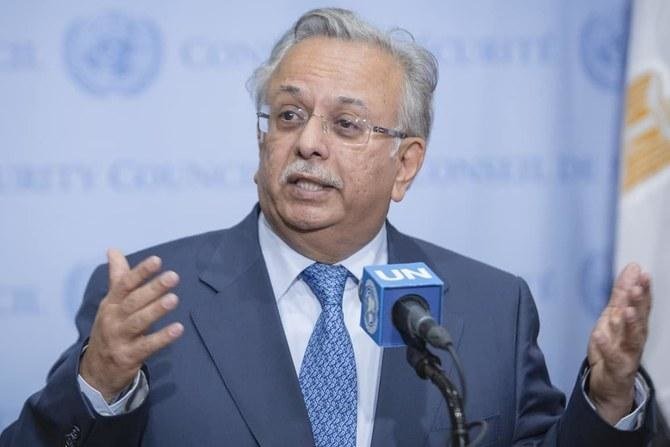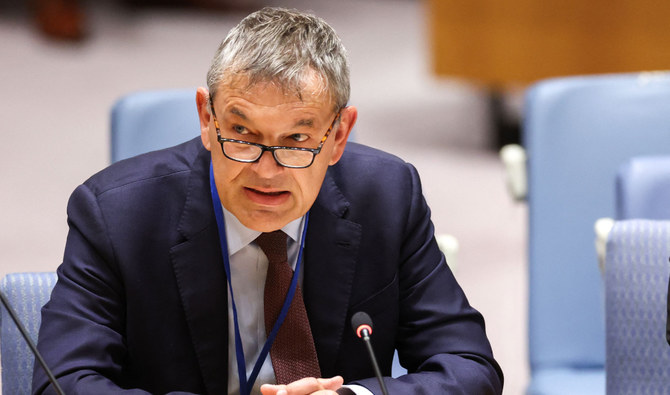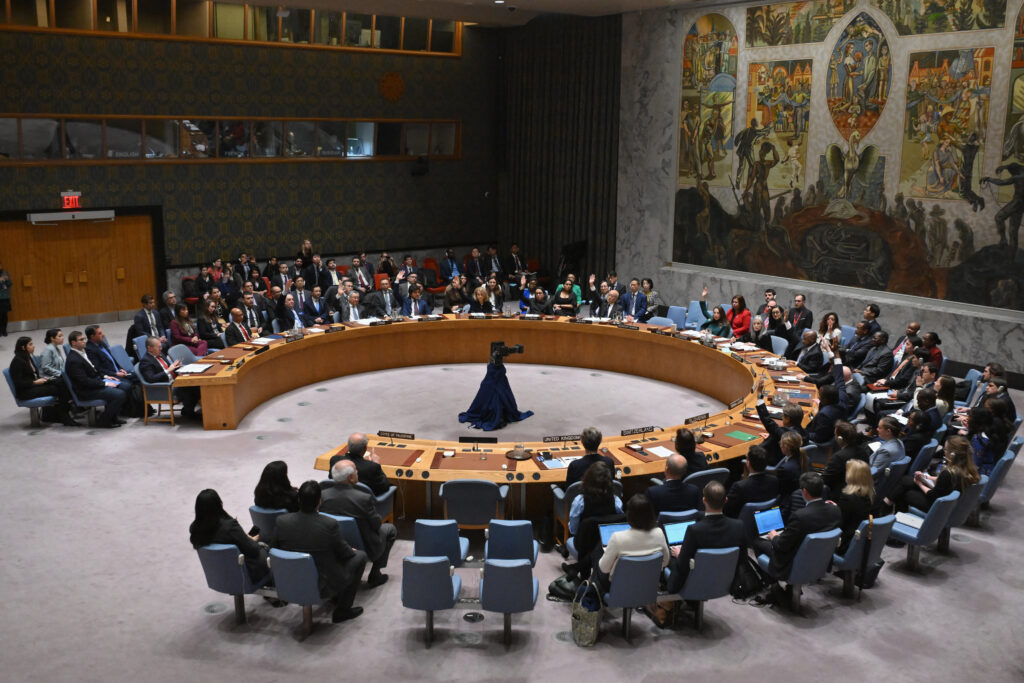Ephrem Kossaify
NEW YORK: “Islamophobia is unfortunately pervasive everywhere,” Abdallah Al-Mouallimi, Saudi Arabia’s permanent representative to the UN, told a high-level international meeting on Wednesday.
It was organized by the Organization of Islamic Cooperation (OIC) to mark the first International Day to Combat Islamophobia. In response to an increase in attacks and other hate crimes targeting Muslims worldwide, the organization adopted a resolution in November last year calling for March 15 to be observed as a day to highlight and address the issue.
Fifty-seven countries, with a total population of 1.8 billion people, are members of the OIC. They include some, in West Africa and South America in particular, that are not Muslim-majority nations.
“Social media, hate speech and disinformation campaigns have made Islamophobia harder to address and eradicate,” said Al-Mouallimi, who stressed that any threat to the freedoms of one community based on the faith of its members is a threat to the religious freedoms of all.
Not only does the media perpetuate Muslim stereotypes through a “disproportionate” focus on the actions of individuals “perceived to be Muslims,” he said, it also plays an active role in spreading hatred. He called on the international community to come together to address this threat.
Speaking on behalf of Prince Faisal bin Farhan, the Kingdom’s foreign minister, Al-Mouallimi cited the words of the “Charter of Makkah,” which affirms that “religions and philosophies are exonerated from the sins committed by their adherents and claimants,” and that “true understanding of Islam requires an objective view that is devoid of stereotypical and prejudicial notions.”
The charter, adopted in the Holy City by the Muslim World League in May 2019, is a pan-Islamic set of principles that aim to counter extremism, advocate religious and cultural diversity, and support legislation against hate and violence. It was presented by Saudi Arabia’s King Salman, approved by the Islamic leaders of 139 countries, and signed by more than 1,200 prominent Muslims.
Al-Mouallimi also raised concerns about an increase in individual attacks against Muslims, and reminded those at the meeting that “personal behaviors should not be attributed to any religion or nationality. We underscore that the dissemination of hate speech jeopardizes the peace of society and serves the agenda of individual extremists to nourish their notion of hatred.”
The Saudi envoy called for an end to all “disproportionate measures” that target Muslims, and activities that stir up “religious intolerance, discrimination and violence.”
He reiterated the principles enshrined in the establishment of the International Day to Combat Islamophobia: a recognition of the growing threat from rising intolerance and sectarian violence; the importance of breaking perceived links that connect terrorism with any particular religion; and the need to raise awareness of acts of violence based on religion and condemn them.
Al-Mouallimi also welcomed a recent report by the UN Human Rights Council that concluded “suspicion, discrimination, and outright hatred” toward Muslims has risen to “epidemic proportions.”
It highlighted the disproportionate restrictions placed on Muslims manifesting or practicing their faith, limits on their access to citizenship, the socioeconomic exclusions they face, and the pervasive stigmatization of Muslim communities. These forms of discrimination, in the private and public spheres, “often make it difficult for a Muslim to be a Muslim,” the UN’s special rapporteur said in the report.
Muslims are frequently targeted based on visible characteristics of their faith, according to the report, such as their names, skin color and religious attire, including headscarves. The study also highlighted “the triple levels of discrimination” that Muslim women face because of their “gender, ethnicity and faith.”
The report — titled Countering Islamophobia/Anti-Muslim Hatred to Eliminate Discrimination and Intolerance Based on Religion or Belief — also examines “how Islamophobia perpetuates a vicious circle whereby state policy validates private Islamophobic attitudes and actions, and the prevalence of such attitudes can propel state policies that penalize Muslims; with stark consequences for the enjoyment of human rights, including freedom of religion or belief.”
It concludes that “cumulatively, in some contexts, such actions may amount to the level of coercion as prohibited under international law.”
UN Secretary-General Antonio Guterres told the meeting: “Unfortunately, far too often stereotypes are further compounded by elements of the media and some in positions of power.
“Anti-Muslim bigotry is sadly in line with other distressing trends we are seeing globally: a resurgence in ethno-nationalism, neo-Nazism, stigma and hate speech targeting vulnerable populations including Muslims, Jews, some minority Christian communities, as well as others.”
Although acts of intolerance might not always be recorded in official statistics, they “degrade people’s dignity and our common humanity,” Guterres said.
“Discrimination diminishes us all,” he added. “As the Holy Qur’an reminds us: nations and tribes were created to know one another.”
Calling for social cohesion and an end to bigotry, the UN chief said that fighting discrimination, racism and xenophobia is a priority for the organization.
Other guests at the meeting included President of the UN General Assembly Volkan Bozkir, OIC Secretary-General Yousef Al-Othaimeen, UN High Representative for the Alliance of Civilizations Miguel Angel Moratinos, and the foreign ministers of Iran, Turkey and Pakistan.






















